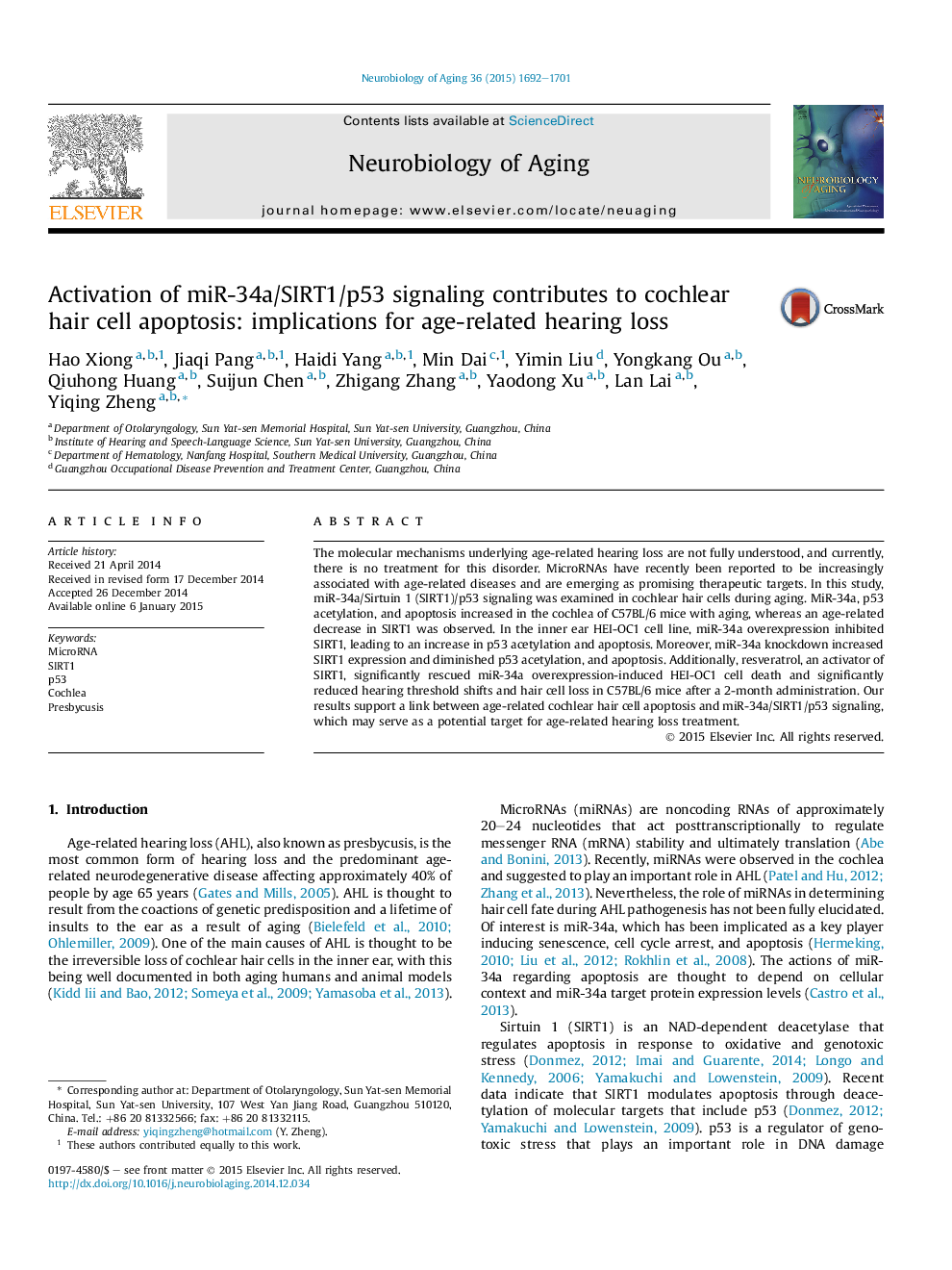| Article ID | Journal | Published Year | Pages | File Type |
|---|---|---|---|---|
| 6804370 | Neurobiology of Aging | 2015 | 10 Pages |
Abstract
The molecular mechanisms underlying age-related hearing loss are not fully understood, and currently, there is no treatment for this disorder. MicroRNAs have recently been reported to be increasingly associated with age-related diseases and are emerging as promising therapeutic targets. In this study, miR-34a/Sirtuin 1 (SIRT1)/p53 signaling was examined in cochlear hair cells during aging. MiR-34a, p53 acetylation, and apoptosis increased in the cochlea of C57BL/6 mice with aging, whereas an age-related decrease in SIRT1 was observed. In the inner ear HEI-OC1 cell line, miR-34a overexpression inhibited SIRT1, leading to an increase in p53 acetylation and apoptosis. Moreover, miR-34a knockdown increased SIRT1 expression and diminished p53 acetylation, and apoptosis. Additionally, resveratrol, an activator of SIRT1, significantly rescued miR-34a overexpression-induced HEI-OC1 cell death and significantly reduced hearing threshold shifts and hair cell loss in C57BL/6 mice after a 2-month administration. Our results support a link between age-related cochlear hair cell apoptosis and miR-34a/SIRT1/p53 signaling, which may serve as a potential target for age-related hearing loss treatment.
Keywords
Related Topics
Life Sciences
Biochemistry, Genetics and Molecular Biology
Ageing
Authors
Hao Xiong, Jiaqi Pang, Haidi Yang, Min Dai, Yimin Liu, Yongkang Ou, Qiuhong Huang, Suijun Chen, Zhigang Zhang, Yaodong Xu, Lan Lai, Yiqing Zheng,
